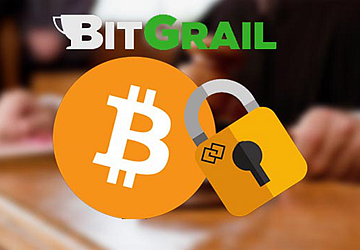The biggest cryptocurrency hacks to date have targeted MT Gox, BitFloor, Linode, Bitfinex, Coincheck, and Bitgrail.
MT Cox
More than 850,000 bitcoins were stolen from Mt. Gox between 2011 and 2014, making it the largest cryptocurrency theft in history. According to Mt. Gox, the flaw that led to the loss was caused by a transaction malleability issue, a fundamental flaw in Bitcoin. Changing the digital signature that creates a transaction's unique code is called "transaction malleability".
It was discovered that MtGox's keys had been stolen in September 2011, and the company failed to use audit procedures to identify the incident. Additionally, since MtGox frequently reuses addresses, these keys are continually used to steal new deposits. As a result, by mid-2013, approximately 630,000 bitcoins had been stolen from exchanges. Surprisingly, WizSec (a team of Bitcoin security experts) claims that blockchain transactions can provide evidence of ongoing theft to back up this claim.

Lithium node
Community whales and bitcoin exchanges use web hosting company Linode to secure their hot wallets. Unfortunately, the digital service that houses the wallet was attacked during the Linode outage in June 2011.
Unfortunately, this resulted in the theft of over 46,000 BTC, although the exact amount is unknown.
Building
Despite the less serious nature of these thefts, high-impact Bitcoin hacks have occurred. In 2012, 24,000 bitcoins were stolen from BitFloor. During the crime, the attackers obtained an insecure (i.e. unencrypted) duplicate wallet key and stole approximately $250,000 in virtual currency. Roman Shtylman, the man behind BitFloor, decided to shut down the exchange.
Bitfinex
As shown by the theft of 119,756 BTC in another massive heist at Bitfinex, multisig (requiring multiple keys to verify BTC transactions) is not a solution in itself.
Additionally, Bitfinex appears to have decided not to use cold wallets to obtain a legal exemption from the Commodities and Exchange Act. While the use of threshold signatures is interesting, it does not ensure that the power to allow transactions is distributed.

Bitcoin
Small Italian exchange Bitgrail trades esoteric cryptocurrencies like Nano (XNO), formerly known as RaiBlocks. The value of Nano fell to 20 cents in 2017, but when it hit $10 in February 2018, the platform was hacked, causing BitGrail to lose $146 million.
Over 220,000 people have been scammed by coins stolen from the internet. Unfortunately, small exchanges do not use basic security measures such as cold storage wallets, which puts large amounts of funds at risk. Ivano Gabrielli, head of the National Cybercrime Center, claims that it quickly became clear that the CEO was involved in the company's controversy.
Coin acceptor
In January 2018, Japan-based Coincheck had $530 million worth of NEM (XEM) tokens stolen. However, it is unclear who the Japanese hackers were who got into the security system.
After the investigation, Coincheck revealed that a staffing shortage at the time allowed hackers to attack their systems. Furthermore, the hackers effectively compromised the system as funds were kept in “hot wallets” with inadequate security protections.
